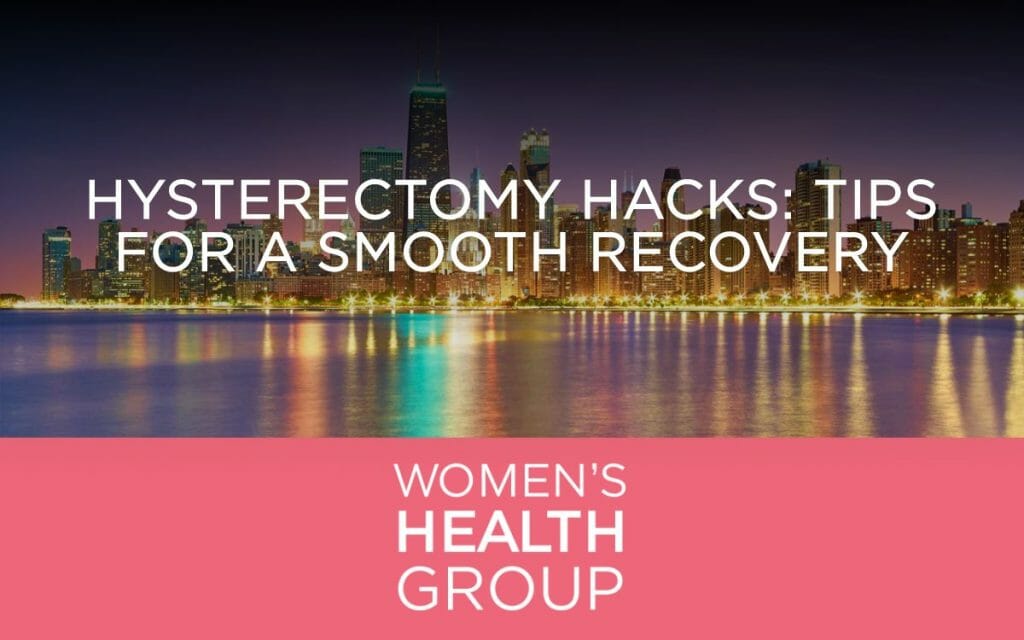Understanding Hysterectomy Surgery and its Implications
As part of an obstetrician-gynecologist’s career, we help our patients navigate the labyrinthine pathways of women’s health, from fertility problems to cancers that often necessitate invasive procedures. Hysterectomy — the surgical procedure for removing the uterus — is one of the most common surgeries we perform. According to Mayo Clinic, nearly 500,000 hysterectomies are performed each year in the United States.
Despite the frequency of these operations, the recovery period after hysterectomy can prove challenging for many women. This blog post aims to provide proven ‘hysterectomy hacks’ to smooth your recovery, based on our experience at the Women’s Health Group, Chicago, Illinois, and reliable resources such as Mayo Clinic and Women’s Health Gov websites.
Prioritize Preparation Before the Procedure
Preparation is often underestimated, yet it can significantly impact the smoothness of your recovery. Below are some critical points to consider before your surgery:
– Assess your living environment for potential obstacles you may face during recovery and make necessary modifications.
– Shopping for post-surgery essentials beforehand can be beneficial.
– Prepare meals beforehand and freeze them. Post-operative nutrition is vital for healing.
In a nutshell, foreseeing the potential hurdles and having a game plan can considerably ease your recovery process.
Navigate the Post-Surgery Phase Effectively
With preparation out of the way, it’s time to explore what awaits you after the surgery.
Resuming physical activity as soon as possible is essential. As per Mayo Clinic, light activity such as short walks can help avoid blood clots, a common post-operation complication.
Listen to your body cues to avoid pushing it too hard. Also, sleeves or stockings recommended by your doctor can help prevent blood clots during this inactive period.
Pain and Discomfort Management
Pain management is crucial in the post-hysterectomy saga, and discomfort is common in the aftermath of surgery. Learning effective pain management can aid your recovery noticeably.
Timely medication not only eases pain but also facilitates your mobility, which adds to your recovery. An additional piece of advice fromWomen’s Health Gov recommends using a cushion or pillow to support your abdomen during coughs or movements, which can significantly reduce discomfort.
Sustain Mental Well-being
Any surgical experience, including a hysterectomy, can have psychological implications. Adopting wholesome mental health practices during recovery might as well be one of the most underestimated ‘hysterectomy hacks.’
Stay in touch with your loved ones through calls, if not personal visits. If you experience any persistent emotional discomfort, consult with a mental health professional.
Maintain Communication with Your Healthcare Provider
When we conclude our consultation with “You can reach out to us anytime for anything,” we truly mean it. No question is too insignificant when your recovery is at stake. Maintain transparent communication with your healthcare provider about your progress and challenges.
In conclusion, although undergoing a hysterectomy can be an overwhelming experience, adopting these ‘hysterectomy hacks’ can ensure a smoother transition to normalcy. A well-executed plan paired with resilience and diligence can go a long way in conquering your recovery journey.
We, at the Women’s Health Group in Chicago, Illinois, with years of experience in handling this transition for our patients, equipped with our expertise, do our best to ensure that you recover in the shortest time with immense ease.




